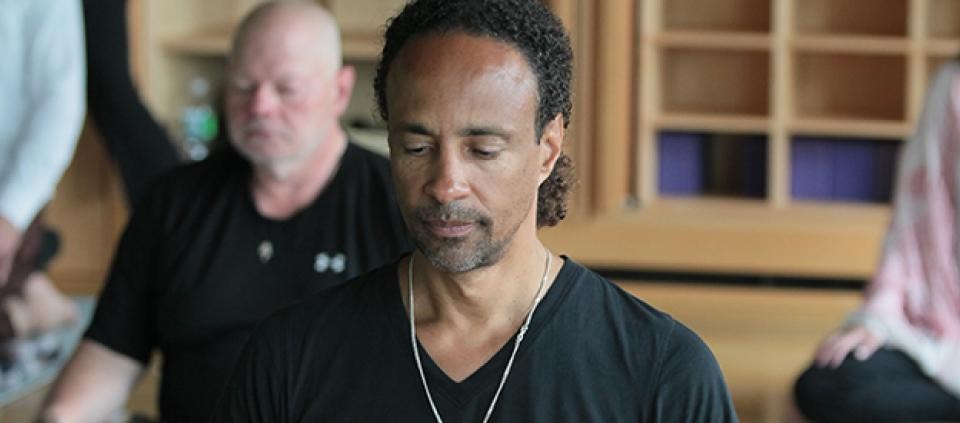Meditation, Resistance, and the Practice of Compassion

When I'm sitting with a group of people who are brand-new to meditation, I ask them to close their eyes and call out words that come to mind when they think of meditating. Often they come up with words like bliss, ecstasy, no thoughts. And then there's one person in the back of the room, with a little smile on his or her face, who's actually meditated, and that person will say words like obsessive thinking, pain, humiliation. A lot of people have a concept of what meditation is, but when they actually engage in the practice, they recognize the real challenges of what it means to be present.
What I try to do as a teacher of meditation is to introduce the practice in such a way that people will actually enjoy it and have an appreciation of what it can do for them. I would much rather lead a 15-minute meditation and have someone walk away with their interest piqued than lead a 45-minute meditation and have someone walk away saying, "I will never do that again!" My interest is in bringing meditation to different populations in such a way that they can relate to it and see its value and want to learn more. I’ve taught meditation in corporate settings, in adult evening classes, for stressed-out high school students. It's immensely satisfying to help people recognize that there are strategies that can not only help them improve the quality of their lives but also give them a real, palpable sense of inner freedom.
Safety is the most important factor in any class, so I do whatever I can to establish and create safety. For corporate classes, that may mean a technical lecture on the physiology of stress. For others, it may mean starting a conversation around the cost of stress and its effects. Or I might do something very simple and silly and in the body to get people laughing. But the essence is the same—to help people feel safe, to instill curiosity, to help people understand their experience.
The real key to understanding the transformative process is recognizing the role of resistance. Meditation is in essence a cathartic process. I believe there is an intelligent and evolutionary force or energy that brings everything undigested and incomplete in your life into the light of awareness and compassion. We learn over time to recognize that exploring resistance is where the real juice is, where the realm of insight and real freedom lies. As far as I can tell, it's a never-ending process. As Ram Dass said after an entire life dedicated to meditation and yoga, "I'm as neurotic as I ever was, only now I'm friends with my neurosis."
Working with doubt is one of the most challenging aspects of meditation. We’re trained to doubt and judge ourselves; doubt and judgment are the real diseases of the Western mind. That's why there's sometimes a misconception about the practice of meditation. We think of meditation as a training process for awareness, which it is, but awareness is only 50 percent of the training. The other 50 percent is a training in compassion—toward ourselves and toward the world around us. In many ways, that's the hidden message in the practice of meditation—to learn to be kind to ourselves.
© Kripalu Center for Yoga & Health. All rights reserved. To request permission to reprint, please e-mail editor@kripalu.org.
Jonathan Foust (Sudhir), MA, cofounder of the Meditation Teacher Training Institute and former President of Kripalu, has been leading retreats and training teachers for more than 25 years.
Full Bio and Programs